Wedding boutique in Jordan's largest refugee camp - PHOTO
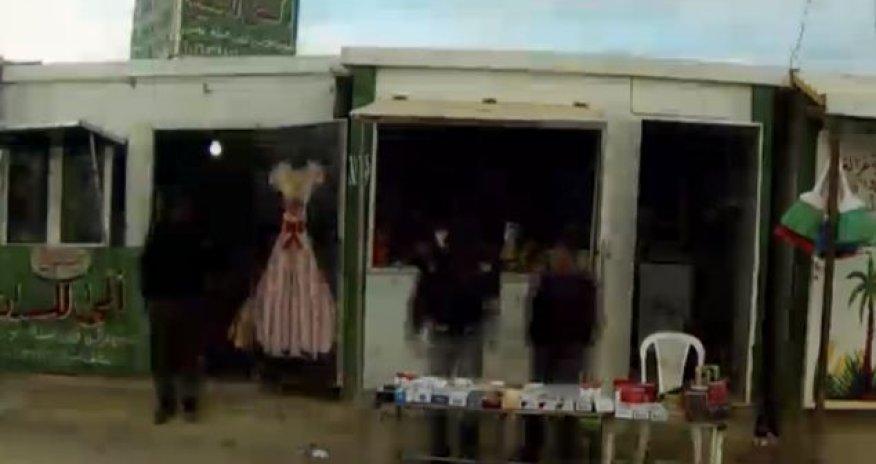
Hundreds of weddings have taken place in Zaatari refugee camp since it opened in 2012 and is home to 127,000 people who fled the conflict in Syria. Adjusting to camp life is a harrowing experience and CNN correspondent Atika Shubert said she was overwhelmed by the sheer number of desperate people flocking from the Syria-Jordan border to Zaatari.But she also told how she was encouraged by the residents' dogged determination to turn the camp into a home.'I expected it to be more grim once I got inside the camp,' she admitted when discussing her visit to the area earlier this month to make a documentary for CNN.Shubert was particularly surprised by the camp's main street, known as the 'Champs Elysees', which features 3,000 shops, restaurants and food vendors.And of course, three wedding dress outlets.'I had heard it was a thriving city, but the hundreds of shops were outstanding,' she explained. The UNHCR, the UN's refugee agency, is trying to create a sense of normality in the camp by encouraging trade and services and many people who have access to cash have set up shops.Shubert met Rowaida Abu-Zaid, a mother-of-two and owner of Alma's Salon for Women which occupys a small space in the sprawling camp.Rowaida fled the fighting with her husband and children and has lived in the camp, which is about eight miles from the Syrian border, for a year and a half. She was a hairdresser in Syria and her sister was a make-up artist, but she only came up with the idea of opening her own business when one of her clients suggested she rent out wedding dresses - it is profitable as at least ten weddings take place every week in the camp, according to the UN Refugee Agency. Rowaida borrowed some money and bought a variety of colourful dresses which now hang proudly on the wall of her shop which is open for business every day from dawn to dusk.In the summer Rowaida rents out four dresses a day and offers a wedding day package to customers which includes hair and make-up before they get married in one of the camp's many mosques.Rowaida has to be competitive as the other wedding dresses are rented out by her 'rival's for dinars (around £8). Her most popular rental is the first dress she bought which she has nicknamed the 'Good Luck' dress - the white garment is adorned with silver crystals and has a large veiled skirt. 'They (her customers) feel like home when they come here,' she explains.Several women refused to be filmed, but Rowaida was delighted to show off her business and Shubert reflected: 'I was really taken by her fearless attitude and candid views. 'She showed me how the simple act of applying lipstick is an act of resilience for the women of the camp.' But behind the glamour of the spa shops Shubert tells MailOnline that there is sometimes a darker reason for the high number of marriages in the camp.'The sad reality is that families are getting their daughters married younger and younger for several reasons - it can be to another refugee with better prospects.'This is a point backed up by Rowaida who explains: 'The problem is even though they are young their parents get them married because they are afraid about their future.'As in Syria there are alot of rape incidents, a lot of sexually assaulted woman that the parents have been worried about... and want to get them married.'Shubert spent five days touring the camp and got first hand accounts of how many of Zaatari's 23,000 children bear the physical and emotional scars of war. She met six-year old Safah who survived a rocket attack on her family home in Aleppo, but was hit by a second rocket outside Damascus.When her father finally found Safah in hospital following the blast, he was distraught to discover his daughter's leg had been amputated.Now Safah, who was a bubbly child, spends her days in a wheelchair, watching as her identical twin sister dances and takes part in classes in the camp. More than 1.7 million Syrian refugees have fled to nearby countries to escape fighting that began as protests against the government in March 2011 and has degenerated into civil war with an increasingly sectarian dimension.And Shubert met dozens of Zaatari residents who all told her different, but equally heartbreaking stories of the lives they left behind in Syria. But they all share one thing in common, she explains: 'Every single Syrian refugee I spoke to said the same thing: if the war stopped today, I would be home tomorrow.'(dailymail.co.uk)ANN.Az
Latest news 
More news 
























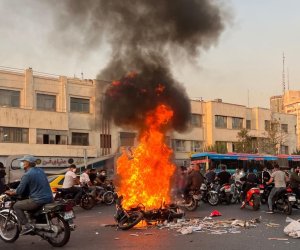


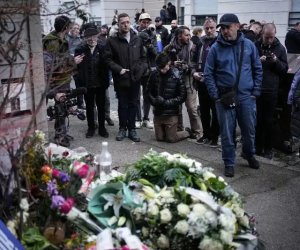



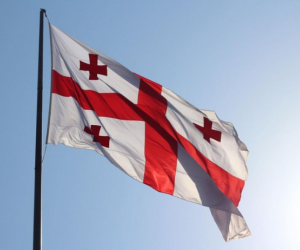
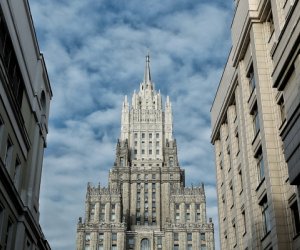


 Photo
Photo 



 Video
Video 

